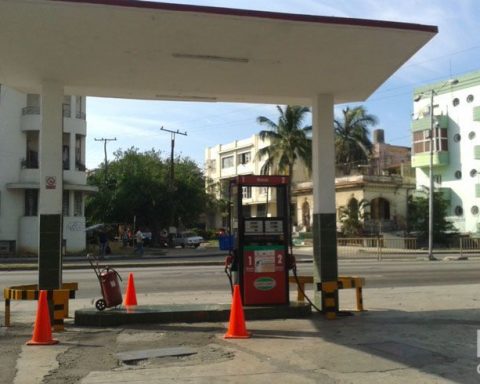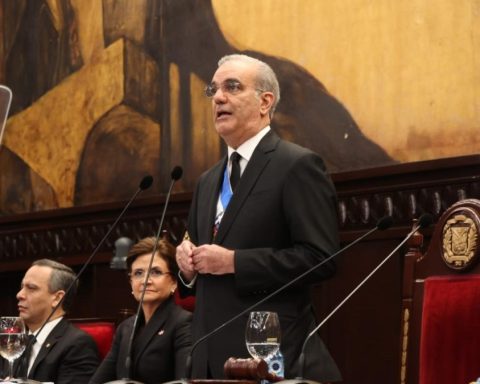Banks were born with the expansion of monetary-mercantile relations, with the evolution of the equivalent form of value to its money form and driven by the need not only to keep money in a safe place, but also to facilitate and ensure distant operations in time and in different physical places.
They also became a good business that, well managed, has been able to generate, over many centuries, significant profits for its owners. Today they are probably the power behind all powers.
He was reading a magnificent book on the history of finance, The triumph of money from Niall Ferguson, that I discovered why these institutions that lend money were baptized with the name of “bank”. The origin of the name, according to Ferguson, comes from the practice of moneylenders in some Italian cities who carried out these functions in the portals of those palatial houses sitting on A BENCH!
Apparently it became common then that when you wanted to go for a loan, you said: “I’m going to the bank.” I don’t know to what extent it will be true or not, but the truth is that Bank and Money go hand in hand. The image of one calls the other and both have TRUST as one of their main bases!
Money is trust on paper, says Ferguson. The bank can only function as such because of the trust that people and companies have in them.
Over time, a long, long time, all banking activity has been regulated under rules that standardize its operation practically throughout the world, and the compliance offices of those banks are very zealous in enforcing them.
The practice of limiting cash transactions is also an international practice that has been around for several decades. It is part of what is known as “due diligence”, applicable to almost all activities and required in the commercial, banking and financial world. Two international institutions have been leaders in enforcing compliance, the Basel Committee on Banking Supervision (BCBS) and the Financial Action Task Force (FATF).
|
For the BCBS, know-your-customer due diligence goes beyond the prevention of money laundering. In his opinion, the process protects the integrity of the market. In addition, it prevents banks from being exposed to reputational, operational, legal and concentration risks. Font: infolaft |
The announcement of Banco Metropolitano establishing limits to some cash handling and electronic transfer operations and several hours later, the note from Banco Central de Cuba announcing that these measures would be extended to the rest of the banking system has caused a certain commotion in some “people natural”.
Banco Central de Cuba clarifies limits on electronic transactions and cash extraction
That it is necessary to protect the health of the banking and financial system and due to the transitive nature of the markets in Cuba, I do not think it is debatable. It is especially good for this whole world of new businesses that is expanding at a speed not well calculated and whose dynamics, creativity, innovation and learning capacity have surprised everyone.
The question is another: why now and not before? I will advance some hypotheses:
1- Being outside the standards of international practices makes it difficult for the Cuban banking system to establish better relationships with other foreign banking institutions. It makes the Cuban banking system less reliable at times when the opposite is needed.
This is a laudable purpose without a doubt. The entire Cuban economy and logically its banking and financial system is under extra pressure, so complying with internationally required standards, even when those standards respond to the interests of international financial capital more than anything else, seems correct above all because they do not there is evidence that life exists on any other planet and we have no way of knowing if it exists in another solar system; so for the moment we are alone and there is nowhere to go. There is not another option.
Of course, there are other factors that also conspire against confidence in the Cuban banking system and a good part of them is not in the hands of the bank to solve, but this is not the time to address them.
2- The adoption of such regulations at this time is due to tensions over the demand for cash and the growth in the volume of electronic transactions for which the banking system does not have an immediate response.
The demand for liquid money is due to three reasons, namely:
- the reason transactionthis is the need to carry out purchase and sale operations of goods and services;
- the reason speculation, which in this case basically refers to the purpose of obtaining profits through operations in the financial markets, which do not exist in Cuba, although we have the Creole variant of “speculating” with current money to “lend” it to those people who require it to make transactions; For example, buy tickets to Nicaragua or start a business, without having to go through bank inspection, or simply play with the variations of our multiple exchange rates;
- the reason caution which basically occurs when people save money anticipating what will happen in the future. Given the uncertainty that the ordering? left us as an inheritance and that has become commonplace, the more it is justified to turn mattresses into small private money vaults, something very inefficient in terms of the money market and the economic system, but with calming effects for people.
3- The regulations respond to the need to establish greater control over the operations of economic agents and reduce tax evasion that occurs when “legal entities” use their accounts as “natural persons” to carry out transactions that correspond to their status as legal person.
It is also logical and to be expected if we take into account the magnitude of tax evasion in Cuba, among other reasons due to the relatively low bank use of the economy and also due to the effects of a tax collection system that has resisted modernizing and catching up with the growth needs of our economy and the new realities that our country experiences, especially from the summer of 2021.
4- The measure is part of the intention to limit the expansion of the non-state sector.
Given the different ways of understanding the role of the non-state sector in our economy and the ideo-political differences in this regard, it is legitimate to consider this possibility. However, in my personal opinion, I find it inconsistent with the purposes set out in the documents that support the current stage of the reform, including the Constitution of the Republic. According to official information, today that sector is responsible for at least 15% of GDP and 50% of employment in the Cuban business sector, in addition to being the one that has generated new employment for years. It does not seem logical to attack a sector that contributes to the dynamics of an economy that is facing a deep crisis and that even today barely shows signs, even slight ones, of recovery.
5- Various combinations of the first four. I do not think it necessary to expand on the latter.
The other side of the coin is the consequences of new decisions.
We will anticipate some possible effects:
1- Massive withdrawal of physical money by bank customers, compromising their own ability to cope with this situation and generating a significant cash shortage. Because it is unusual, the measure generates uncertainty and raises the “caution” of agents and the general public.
Money is like car oil: too much chokes it and can lead to inflation; but if there is too little, then the economy may slow down.
If that old formula that the mercantilists enunciated more than five centuries ago is still fulfilled and that says that the mass of money in circulation and the speed of its rotation is determined by the price level and the number of transactions (a relationship that with over the centuries was refined and formalized by different schools of economic thought), then it is possible to assume that the demand for money for transactions in Cuba has risen considerably due to the expansion of commercial transactions and also due to price increases .
While it is also true that the new norm does not limit the availability of money for the operations of non-state actors, the measure does substantially reduce the amount of money in circulation and the possibility of complementing it with electronic transfers.
2- Generation of a money market outside the formal channels established by the national banking system with negative consequences for the purpose for which the new standard has been made effective. This, moreover, can contribute to increasing tax evasion rather than preventing it.
3- Substantial reduction of bankarization, purpose declared time and time again by the banking authorities themselves. This would happen for two reasons: loss of confidence in the banking system, which once again surprises balance holders –it already happened with the so-called Ordinance– and second: the relatively low limits imposed on such transactions.
It is true that the income of the vast majority of the population is not enough to purchase basic goods and services, much less to have savings accounts.
4- It can also have a negative effect on the banking of remittances and on the stimulation of their diversion through informal channels, which would make their use much less efficient as a dynamic factor of the much-desired economic growth.
It is noteworthy that this measure was announced barely twenty-four hours before Western Union’s announcement that it was reestablishing the sending of remittances to Cuba. Will remittances have enough confidence to use banking services? Will the remittances prefer their dollars to be in the coffers of the banking system rather than in their drawers and mattresses, where they are apparently safer?
I imagine that back in the Middle Ages, when the moneylenders sitting in their banks provided money to the Genoese or Venetian nobles, in exchange for interest rates that were not small at all, some of them, dissatisfied with the service received, have undertaken it with that one and in the altercation the bank has been damaged, broken. Perhaps that is where the origin of that other term that accompanies banks since their birth comes from: bankruptcy.















